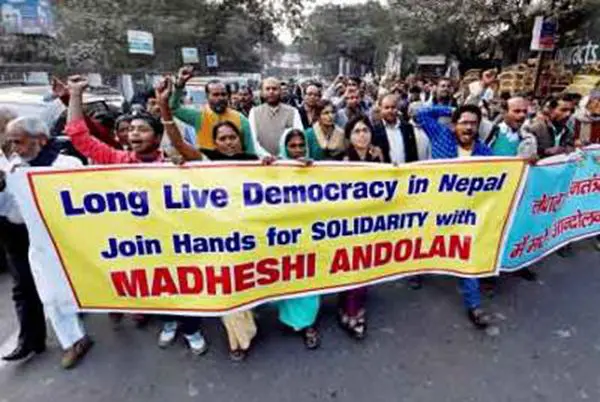(THE TIMES OF INDIA) Amid a raging political crisis in Nepal over its new Constitution, the country's last monarch Gyanendra Shah on Sunday said that he may have abandoned the palace but not the nation or his responsibility towards the people.
Gyanendra, in a statement, hinted that he may have some role in Nepalese politics, nearly eight years after his rule came to an end following a popular revolt that forced him to abdicate.
The 68-year-old former King's remarks came on the eve of 293th birth anniversary of Prithvi Narayan Shah, Gyanendra's forefather who unified Nepal in 18th century AD, when the king of small state Gorkha conquered Kathmandu and expanded his empire.
Gyanendra's statement comes at a time when Nepal is facing a crisis with the border blockade following promulgation of the Constitution last year.
Madhesi, people residing in Terai region bordering India, have rejected the statute and are protesting for the last five months. The protests have resulted in clashes with police that have claimed 50 lives.
"I handed over the property of the people to them and left the palace for the sake of national interest, happiness, prosperity and satisfaction of the people," he said.
"But all should remember that I have not left my Nepali home and have not given up my responsibility towards Nepal and its people," he asserted.
Gyanendra was removed from the Narayanhiti Palace, from where the Shah dynasty resided, in May 2008 after Nepal's newly first Constituent Assembly abolished monarchy and converted the country into a republic.
The erstwhile Hindu state was also converted into a secular one at the same time.
"It is the need of the hour that what kind of responsibility, role and support Nepali people want, from whom, (should) be revealed," he said.
The former monarch has expressed concern over the severe crisis of essential goods the people in Nepal are facing due to the blockade of key border points with India as a result of the agitation by the Madhesi groups in southern Nepal.
"Nepali people are struggling hard to manage two times meals a day and live a normal life. It is a matter of serious concern," he said and asked the people from all corners of the country to maintain communal harmony.
His remarks came a day after the agitating United Democratic Madhesi Front announced it would launch a fresh protest campaign from next week.
Their major demands include re-drawing of provincial boundaries, proportionate representation and allocation of Parliament seats on the basis of population.
 简体中文
简体中文





